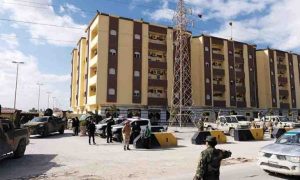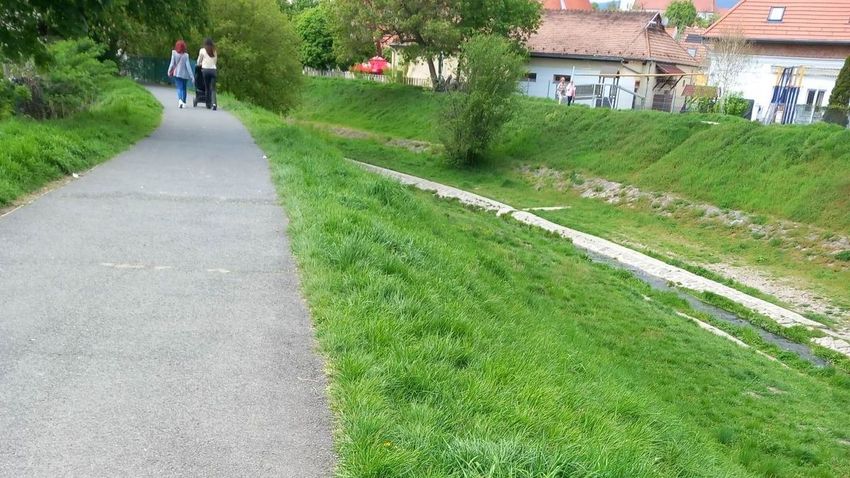Rashid Khechana – Although observers believe that a new government is currently being arranged to supervise the electoral process, in coordination with international actors in Libya, it is unlikely that Dabaiba will accept to step down.
Whether the civil war in Sudan stops or the fierce battles continue, Libya will be at the forefront of those negatively affected by the repercussions of the war, after Chad closed its borders with Sudan completely. The former Libyan Minister of Information, Mahmoud Shamam, confirms that what is happening in Sudan casts a shadow over Libya, especially on the camp of retired Major General Khalifa Haftar, given the support that the latter received over the years, from Muhammad Hamidti Daglo, commander of the Rapid Support Forces. Most likely, thousands of displaced Sudanese and refugees will head to southeastern Libya, fleeing the war. Libya will also be a relatively safe haven for the “Janjaweed” forces in the event that Muhammad Hamidti Dagalo is defeated in the war. This prompted the head of the Military Organization and Administration Authority in southern Libya, Brigadier General Abd al-Salam al-Busaifi (loyal to Haftar) to call on the Chiefs of Staff “east and west” to close the borders with Sudan, assign striking military forces to protect them, and station reconnaissance planes at Kufra Airport (southeast) in order to monitor And prevent any infiltration into the Libyan interior. Sources close to Haftar confirmed to the Emirati newspaper, Al-Ittihad, that he is studying with his aides to close the common borders between Libya and Sudan, and contain the repercussions of the war on the security of neighboring countries. The former Libyan Minister of Interior, Major General Saleh Rajab, expressed his fears about the movement of Sudanese elements into the Libyan interior, and their use as a launching pad to carry out operations inside Sudan, pointing out that “what is happening in Sudan aims to divide it, with Western support.” The border triangle region (Libya, Sudan, Chad) is considered one of the main areas that concern the Libyan side, in light of the attempts of elements affiliated with terrorist networks to reposition themselves in the region during the coming period. Certainly, this scenario is what disturbs the Americans, who have put pressure on the two warring parties through Secretary of State Blinken to stop the war, or at least to abide by the armistice.
What further complicates the situation in the south is that state institutions have collapsed for years, and the Rapid Support Forces are working in coordination with the Russian “Wagner” forces, which are deployed in countries neighboring Sudan. Among the signs of cooperation between the Rapid Support Forces and the “Wagner” elements was the visit that Hamidti paid to Moscow, the day after the outbreak of the war in Ukraine, and the hospitality he received from Russian officials. More than that, the “Wagner” forces and the Rapid Support Forces are protecting gold mines in Sudan, according to the “European Council on Foreign Relations” research center (European Council on Foreign Relations). The subsoil in Sudan contains great wealth, as it is the second largest producer of precious metals in the African continent, most of which are sold in parallel markets. Moreover, the Rapid Support Forces, led by Hemedti, control an unspecified number of gold and precious metals mines in Sudan.
Against this background, it seems that Hamidti has been planning for two years to rise from the position of the second man in power (the Presidential Council) to the first position, which requires the removal of the current head of the council, Abdel Fattah al-Burhan. Hamidti’s presidential aspirations were not hidden since his visits to the interior regions and his attendance at tribal councils multiplied, to establish relations with local leaders, who were considered the pillars of General Omar al-Bashir’s regime, before he was overthrown by a popular revolution in 2019. The danger lies, according to some experts, in taking the obstructionists For the elections in Libya, the war in Sudan and its humanitarian and political repercussions on the Libyan south, is a pretext to demand a postponement of the elections. In his briefing to the Security Council last Wednesday, Bathili stated that he had agreed with the security and military parties to secure the elections, renounce violence, release detainees, and ensure an inclusive national reconciliation.
It is strange that Russia is also talking about the need for the withdrawal of “all non-Libyan armed forces and military units, in a gradual and coordinated manner, in order to maintain balance in the field,” and it means the balance between Haftar’s forces and the forces loyal to the unity government. As for the other force supporting Haftar, which is calling, however, for the withdrawal of foreign forces from Libya, it is the UAE, which confirmed that “achieving stability requires the withdrawal of foreign mercenaries and foreign forces in a balanced and simultaneous manner.” It also urged the “parties”, without naming them, to set a clear agenda for implementing the electoral process. It is noteworthy that a lot of talk is being said about the need to speed up the preparation of electoral laws by Committee 6-6, which is composed of six members from the House of Representatives and six others from the State Council, but its movement is still slow. However, no one discussed the reasons that led to the postponement of the elections after they were scheduled for December 24, 2021. It is known that the most prominent reasons are the two dilemmas represented in allowing the military to run for the presidential elections, or preventing them from running, and the one concerned in this is the retired Major General Khalifa Haftar. As for the second dilemma, it concerns Saif al-Islam, the second son of Muammar Gaddafi, who would have rejected his candidacy for the presidential elections in 2021 due to the issuance of final judicial decisions against him, by external and internal judicial bodies, because of his war crimes. Behind the scenes, a possible way out of the source of the delay related to the candidacy of the military is being discussed, represented in the pledge of those who wish to run, from among the military establishment, to resign from the army before the elections, provided that he will not return to his military position, if he does not win the ballot.
dual nationality barrier
As for the proposed solution to the barrier of dual nationality, it is to require the renunciation of foreign nationality completely, before voting. It is not known whether Haftar will accept this formula or not, but as long as there is no political and legal solution to the dilemma of dual nationality, for Haftar, who holds American citizenship, in addition to his Libyan nationality, the actions of the 6-6 Committee will not be effective and efficient in paving the way for elections. . It seems that the difficulties of Haftar’s candidacy may justify resorting to an alternative represented by his ally, Parliament Speaker Aguila Saleh.
The prominent candidates for the presidency are not limited to the three Khalifa Haftar, Saif al-Islam Gaddafi, and Aqila Saleh. There are influential personalities who also do not hide their intention to run for the upcoming elections, including the head of the unity government, Abdul Hamid al-Dabaiba, and the head of the parallel government, Fathi Bashagha, but they are not at the height of their strength these days. As the former is not convinced of holding elections, in the hope of extending its stay in power, according to the “permanent temporary” method, under the pretext of “completing the third transitional phase.” As for the second (Bashagha), he must face the erosion of his popularity, even in his city of Misrata, because he made promises he did not fulfill, in addition to his inability to settle in the capital, and to obtain international and regional recognition, as the head of the government emanating from the House of Representatives. It is clear from this scene that the Libyan issue has been fully internationalized, and that the Libyans will not have the last word in resolving the conflict. As a result, Russia has become stressing the need for the withdrawal of all non-Libyan armed forces and military units from Libya, in a gradual and coordinated manner, in order to maintain balance in the field. In this context, the Russians are keen to stay out of the limelight at this stage, to ensure the interests of their company “SMB”, which was founded by Evgeny Prikogin, Putin’s close friend, and is Russia’s economic arm in Africa. As for the UAE, it welcomed the 13th constitutional amendment, calling on the parties to a clear and serious timetable, to achieve the elections, noting at the same time that achieving stability requires the withdrawal of foreign mercenaries and foreign forces in a balanced and simultaneous manner.
At the regional level, it seems that the tour that the UN envoy made, late last month, to three neighboring countries, namely Sudan, Chad and Niger, which focused on removing foreign fighters and mercenaries from Libyan territory, as if it did not fulfill the hopes pinned on it. Nevertheless, the Americans, whether in the United Nations or in their meetings with the Libyans, do not hide their conviction that the return of stability to the country rich in energy resources will make it possible to bring about a significant increase in oil and gas exports, and thus Libyan exports will enhance the capabilities available to Washington’s European partners to obtain fuel. It secures a measure of regional stability, in the face of attempts to destabilize security by Russia on the one hand, and armed groups in the desert regions bordering Libya, especially the “Janjaweed” on the other hand. The “Janjaweed” are accustomed to freedom of movement in the vast Triangle region between Libya, Niger and Chad, and therefore they are a source of great danger to efforts to hold elections before the end of the year.
A popular referendum on the constitution?
There is a question that has not been raised clearly until today, and it is related to the referendum on the draft constitution, which is supposed to precede the elections. However, the remaining time until the end of the year does not allow for two consecutive elections to be held, especially with the difficulty of the electoral paths in the Libyan south. The House of Representatives issued the referendum law on the constitution, but the Electoral Commission has not yet conducted the referendum on the constitutional declaration. Several personalities, including the Speaker of the House of Representatives, Aqila Saleh, adhere to the necessity of presenting the constitutional document, which is related to the organization of the elections process, to a popular referendum before its approval, considering that external interference is “the cause of political instability in Libya,” forgetting the negative role of the Council in condoning the presence of foreign forces. In the country, and his silence on providing most of the Libyan military bodies with money and weapons, from regional countries.
Although several observers believe that a new government is currently being arranged to supervise the electoral process, in coordination with international actors in Libya, it is unlikely that Dabaiba will accept to step down, and he is the one who promised not to hand over powers except to an elected government. This controversy may hinder progress towards elections, as political figures and tribal leaders recently held meetings in Misrata that resulted in a number of recommendations, including creating a unified executive authority that paves the way for holding presidential and parliamentary elections, in which Khalifa Haftar has a role to play. This is an unsecured path, because this executive authority may cling to power, by various means, as previous governments did, and the country will return to square one.
related
comments
2023-04-22 22:07:43
#Libya #referendum #elections


